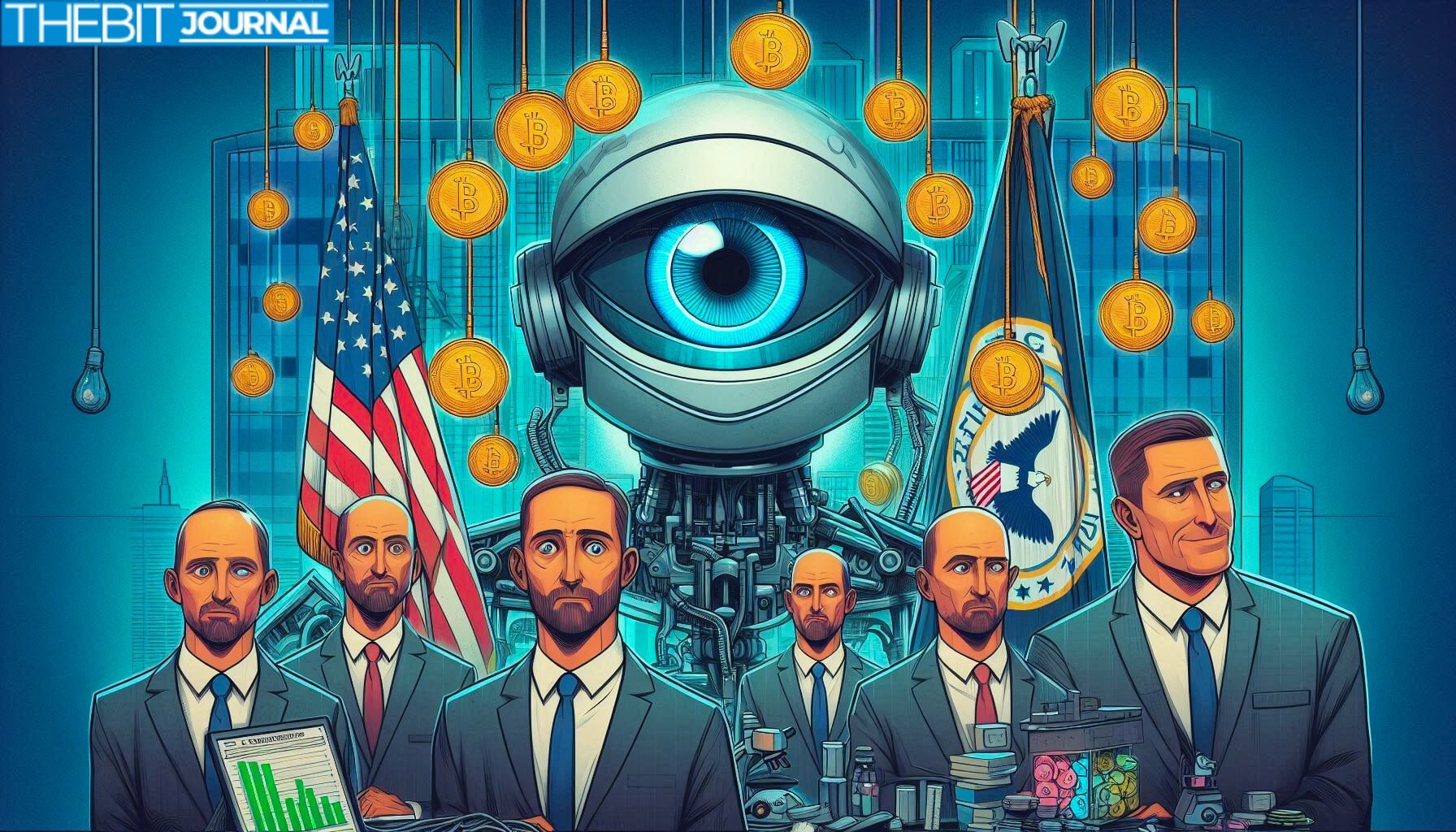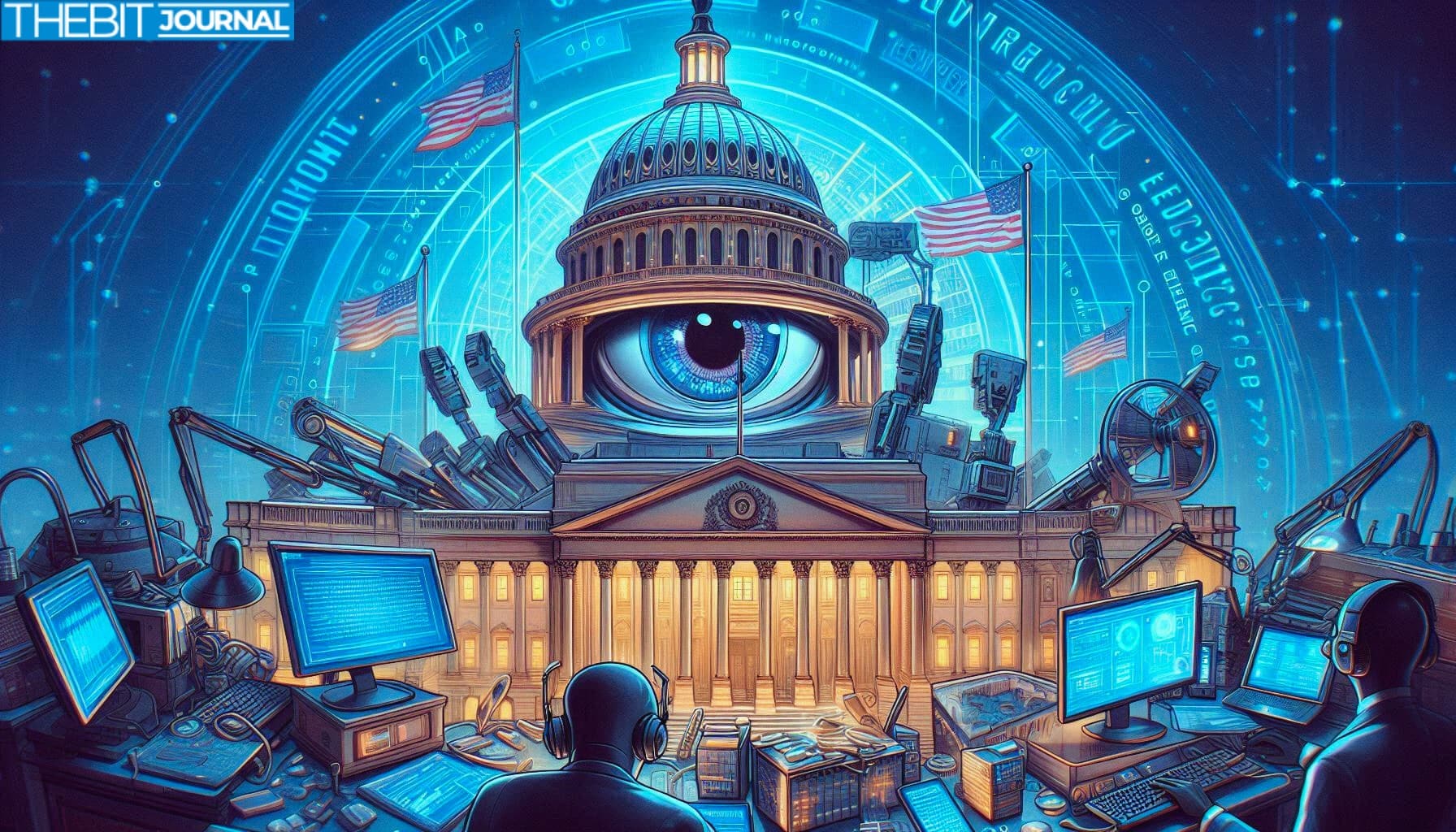 CaryptosHeadlines Media Has Launched Its Native Token CHT.
Airdrop Is Live For Everyone, Claim Instant 5000 CHT Tokens Worth Of $50 USDT.
Join the Airdrop at the official website,
CryptosHeadlinesToken.com
CaryptosHeadlines Media Has Launched Its Native Token CHT.
Airdrop Is Live For Everyone, Claim Instant 5000 CHT Tokens Worth Of $50 USDT.
Join the Airdrop at the official website,
CryptosHeadlinesToken.com
According to reports, the United States is navigating a controversial moment in federal reform, where AI surveillance in government efficiency initiatives under the Department of Government Efficiency (DOGE) have taken a concerning turn. In March alone, over 220,000 federal jobs were slashed, many of them determined by artificial intelligence tools like Grok AI.
While marketed as a move toward a leaner, smarter government, critics say this policy may instead be compromising national innovation, worker rights, and long-term leadership in areas like AI and blockchain. For crypto professionals, the stakes couldn’t be higher.
Grok AI and the Rise of Government-Backed Surveillance Models
The deployment of Grok AI within multiple federal agencies is a shift in how internal monitoring is carried out. Allegedly, the Department of Government Efficiency has rolled out this AI tool under the pretext of streamlining operations, but insiders suggest that it is now combing through employee communications in real-time, flagging perceived inefficiencies and even recommending terminations.
The Environmental Protection Agency and General Services Administration have allegedly already reported the tool’s activity. This development has generated serious questions about how deeply artificial intelligence can be embedded in public-sector decision-making without jeopardizing democratic processes or civil liberties.


Privacy Act of 1974 in the Crosshairs: Is Legal Bound Overlooked?
Based on available reports, government legal frameworks were designed to balance national security with personal privacy, particularly through laws like the Privacy Act of 1974. The current situation, however, suggests that these bounds may be eroding under DOGE’s AI-first mandate. It was alleged that there is currently no clear public documentation on what data Grok AI accesses, how it is evaluated, or how its decisions are reviewed.
If the AI surveillance in government tool is processing records without formal authorization, it could constitute a breach of legal constraints. These potential Privacy Act violations not only harm worker confidence but also damage institutional credibility and public trust in democratic oversight.
Strategic Consequences: Undermining U.S. Innovation from Within
Beyond ethics and legality, the DOGE-led AI surveillance in government workforce reductions are impacting America’s capacity to lead in high-tech research and innovation. The National Science Foundation, which funds vital machine learning and AI research, has seen layoffs and budget cuts that threaten long-term progress. Likewise, the National Institute of Standards and Technology, responsible for AI governance and CHIPS Act incentives—faces sweeping internal restructuring.
These institutions form the backbone of national competitiveness in digital infrastructure. Their destabilization could impede the development of foundational technologies that power not only AI applications but also tokenized systems and crypto-finance architecture.
AI surveillance in government A Governance Model at Risk of Collapse
For crypto, the implications of AI surveillance in government are profound. Blockchain and DeFi communities rely on credible, well-governed public infrastructure to validate, audit, and support new financial models. DOGE’s reliance on privately developed AI to comb through confidential records without transparency introduces systemic risks. If data sets linked to blockchain, smart contract auditing, or token issuance are mishandled, the result could be flawed oversight or erroneous enforcement.
Moreover, the weakening of institutions like NIST, which have contributed to decentralized security frameworks, could widen the gap between innovation and regulation. Crypto founders may begin to see the United States not as a hub of innovation, but as a jurisdiction retreating from its leadership role.


A Deepening Policy Gap: Public Data, Private Hands, and No Oversight
There are also growing concerns about data governance. If DOGE and Grok AI surveillance in government have unrestricted access to internal data across agencies and are using that data to trigger automation recommendations, it suggests a consolidation of state surveillance powers in the hands of private algorithms. This is problematic for any democracy but especially harmful in the realm of public finance and crypto regulation, where algorithmic integrity and traceability are essential.
Without public access to the criteria, logic, or validation protocols used by Grok, there is no way to ensure fairness or accountability, especially when job cuts, regulatory reviews, or enforcement actions are based on opaque decision-making.
Conclusion: Transparency Must Outpace Technology
Efficiency is not inherently bad, and automation does hold potential for cost savings and process improvement. However, in its current form, DOGE’s implementation of AI surveillance in government is raising more red flags than delivering results.
In the absence of oversight, transparency, and democratic safeguards, AI surveillance in government becomes a tool of overreach rather than reform. If innovation, privacy, and workforce integrity are sacrificed on the altar of optimization, the U.S. risks falling behind in more than just technology—it risks eroding the public’s trust in its most fundamental institutions.
FAQs
What is DOGE’s role in AI surveillance in government?
DOGE (Department of Government Efficiency) uses AI to monitor agency communications and determine where to cut federal jobs, raising legal and ethical concerns.
How does Grok AI affect federal workers?
Grok AI reportedly scans internal emails and documents to flag inefficiencies or disloyalty, influencing termination decisions with no public model transparency.
Are federal privacy laws being broken?
Experts argue that DOGE’s operations may violate the Privacy Act of 1974, which restricts unauthorized access to federal records.
How do these cuts affect American innovation?
Mass layoffs and funding reductions at NSF, NIST, and other agencies could weaken U.S. leadership in AI, semiconductor R&D, and digital infrastructure.
Glossary
AI Surveillance in Government – The use of artificial intelligence systems to monitor government communications and optimize workflows, often without full transparency.
DOGE Layoffs – Workforce reductions enacted by the Department of Government Efficiency, often driven by AI-generated assessments.
Privacy Act of 1974 – U.S. legislation designed to protect personal information held by federal agencies from unauthorized access or misuse.
Grok AI Monitoring – The deployment of Grok, a proprietary AI tool reportedly used to analyze internal communications within U.S. government agencies.
Automation in Federal Agencies – The process of replacing manual or human-led government functions with AI-powered systems to reduce cost or improve speed.











